Jake Buehler
Jake Buehler is a freelance science writer, covering natural history, wildlife conservation and Earth's splendid biodiversity, from salamanders to sequoias. He has a master's degree in zoology from the University of Hawaii at Manoa.

Trustworthy journalism comes at a price.
Scientists and journalists share a core belief in questioning, observing and verifying to reach the truth. Science News reports on crucial research and discovery across science disciplines. We need your financial support to make it happen – every contribution makes a difference.
All Stories by Jake Buehler
-
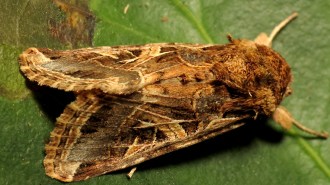 Animals
AnimalsThe screams of thirsty plants may prompt some moths to lay eggs elsewhere
Female moths may pick up on the ultrasonic wailing of distressed plants and opt to lay their eggs on different, healthier plants.
-
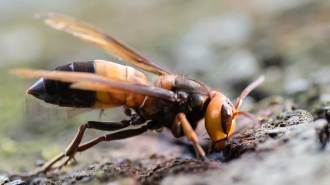 Animals
AnimalsGiant hornets have been sighted in Europe for the first time
Four southern giant hornets have turned up in Spain. Similar stingers, known for honeybee attacks, had the Pacific Northwest on edge a few years ago.
-
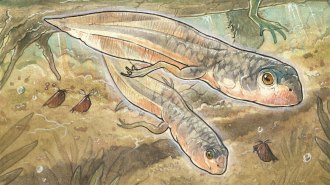 Life
LifeThe oldest known fossil tadpole was a big baby
Fossils of the ancient frog Notobatrachus degiustoi push the known tadpole timeline back more than 30 million years.
-
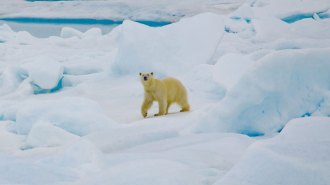 Animals
AnimalsPolar bears are being exposed to more pathogens as the climate warms
Polar bears have been exposed to more viruses, bacteria and parasites in recent decades, a new study shows, possibly acquiring the germs in their diet.
-
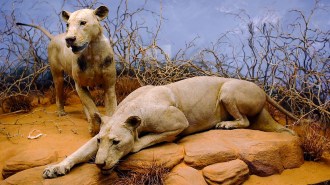 Animals
AnimalsDNA from old hair helps confirm the macabre diet of two 19th century lions
Genetic analysis of cavity crud from two famed man-eating lions suggests the method could re-create diets of predators that lived thousands of years ago.
-
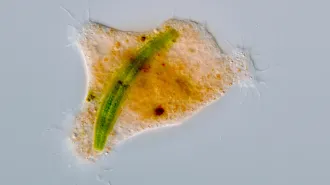 Microbes
MicrobesThis amoeba eats prey like owls do
Meet the ‘owl slime’ amoeba, which drains its prey and spits out the shell.
-
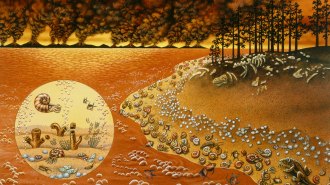 Life
LifeMega El Niños kicked off the world’s worst mass extinction
Long-lasting, widespread heat and weather extremes may have caused the Great Dying extinction event 252 million years ago.
-
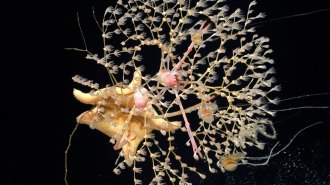 Life
LifeRemote seamounts in the southeast Pacific may be home to 20 new species
A recent expedition to the intersection of two undersea mountain chains has revealed a new seamount and a rich world of deep-sea biodiversity.
-
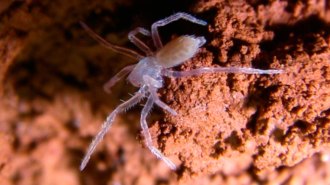 Animals
AnimalsThis spider makes its home in the burrows of extinct giant ground sloths
Caves made by extinct giant ground sloths make the perfect home for a newly discovered type of long-spinneret ground spider from Brazil.
-
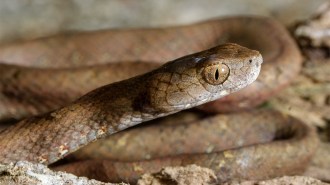 Animals
AnimalsHundreds of snake species get a new origin story
Elapoid snakes, including cobras, mambas and sea snakes, may have evolved in Asia, not Africa as many researchers once thought.
-
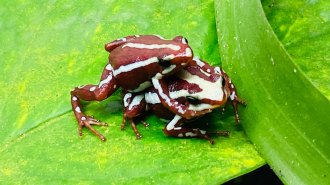 Animals
AnimalsPheromone fingers may help poison frogs mate
Specialized glands in the fingertips of some males may produce seductive chemical signals.
-
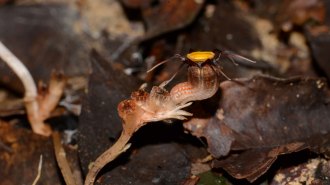 Plants
PlantsThis tentacled, parasitic ‘fairy lantern’ plant is new to science
The bizarre new plant from Malaysia parasitizes subterranean fungi and only briefly erupts from the soil to flower.